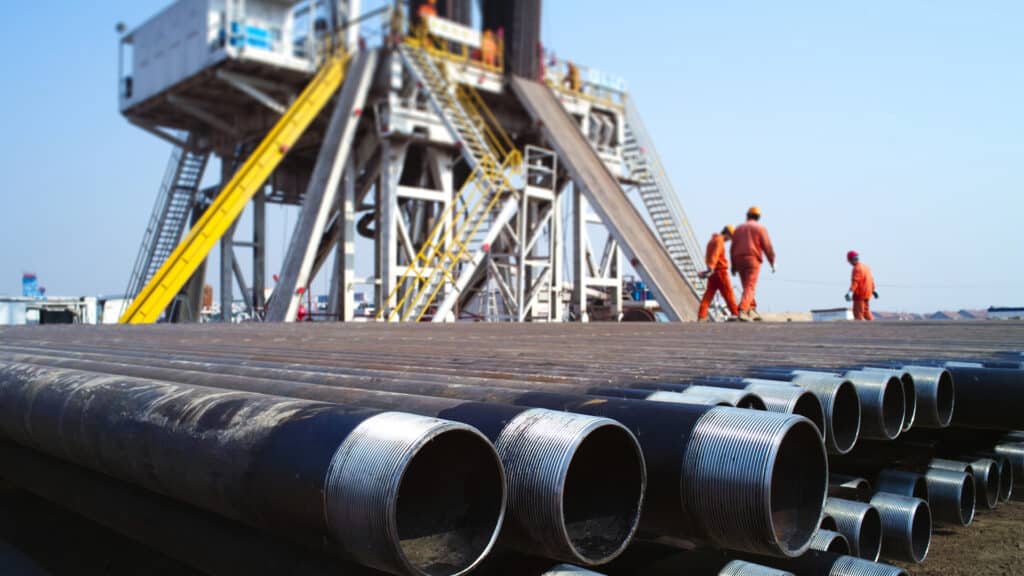U.S., Korea and Germany to produce oil equipment in Kazakhstan

Companies from the U.S., Germany, Italy, South Africa and South Korea plan to localize the manufacturing of oil and gas equipment in Kazakhstan. According to Yerlan Akkenzhenov, vice minister of energy, potential partners include LESER, a German valve manufacturer; Beruseal, a South African provider of leak sealing solutions, and John Crane, a U.S. manufacturer of industrial equipment.
The projects under consideration are expected to create dozens of jobs and attract $3 million in investments. Additional localization projects are set to be launched over the next three years with companies such as Hi Air Korea, a manufacturer of air conditioning and ventilation systems; SLB, Baker Hughes, a U.S. oilfield services company; Breda Energia, an Italian manufacturer of oil and gas spare parts; Flowserve, a U.S. supplier of environmental and industrial machinery; and Swagelok, a U.S. manufacturer of goods for liquid and gas systems. As Akkenzhenov noted, these initiatives will create more than 100 new jobs and attract $17.5 million in investments.
All of the listed companies already operate in Kazakhstan. Swagelok opened its representative office in 2012 and has been supplying its products ever since. Flowserve, LESER and Breda Energia are represented in Kazakhstan by the local company BAUM. Baker Hughes has an authorized partner in Kazakhstan, Atyrauenergoremont, which services mechanical drives, compressors and power generation equipment in the oil and gas industry. Notably, more than 33% of Baker Hughes shares are owned by General Electric.
SLB (Schlumberger) launched its business in Kazakhstan in the early 1990s and now runs offices in Astana, Atyrau, Aktau, Aktobe, Uralsk and Aksai. The Atyrau office serves as the head branch, handling finance, logistics and business management. Although Hi Air Korea currently has no presence in Kazakhstan, First Deputy Prime Minister Roman Sklyar met with the company’s executives last spring to discuss potential joint projects.
The U.S.-based company John Crane has been operating in Kazakhstan since 2015, supplying goods to major oil and gas operators. Beruseal Caspian has been active in the country since 2023.
«The following five facilities were localized in 2022-2023: Wika (Germany), Honeywell (USA), PetrolValves (Italy), Sigma Solutions (Kazakhstan) in partnership with N.Vent (USA), Eltherm (Germany) and Schneider Electric (France). As a result, 177 new jobs have been created, $13.8 million in investments have been attracted, and most importantly, the country has gained the competence to produce and manufacture goods with high added value,» said Yerlan Akkenzhenov.
The Vice Minister also announced plans to increase local content in procurement for the Kashagan, Karachaganak and Tengiz oil fields. He explained that the operators make two-thirds of all industry purchases of these fields: Tengizchevroil (TCO), Karachaganak Petroleum Operating (KPO) and North Caspian Operating Company (NCOC). The Ministry of Energy and contracting companies project that the share of local content could increase by 7% in 2024 (up from 12% in 2023). The forecast suggests that this figure could increase to 11% by 2027 and to 15% by 2029.
«A survey has identified 12 commodity groups that account for 60% of all purchases by major subsoil users (Kashagan, Karachaganak and Tengiz) and have significant potential for localization and the development of Kazakhstani content. These groups include electrical equipment and materials, instrumentation and automation, chemicals and oils and paints, among others,» Akkenzhenov highlighted.
Currently, the Ministry of Energy is negotiating with contractors to revise long-term programs to increase the share of local content in major projects and setting KPI indicators. Additionally, discussions are underway to update the bidding procedures for major subsoil users. These entities are expected to establish direct long-term contracts with domestic producers of goods, works or services in exchange for investments. Recently, such contracts, implemented by TCO, KPO and NCOC, totaled $240 million.
The domestic value in the total volume of purchases of goods, works and services from subsoil users reached 61.6%, amounting to $3.54 billion out of a total of $5.83 billion by the end of the first half of 2024. This represents a 4% increase compared to the same period last year. Currently, out of 312 active subsoil use contracts in the oil and gas industry, 276 already include obligations regarding the share of local content in goods, works and services.

